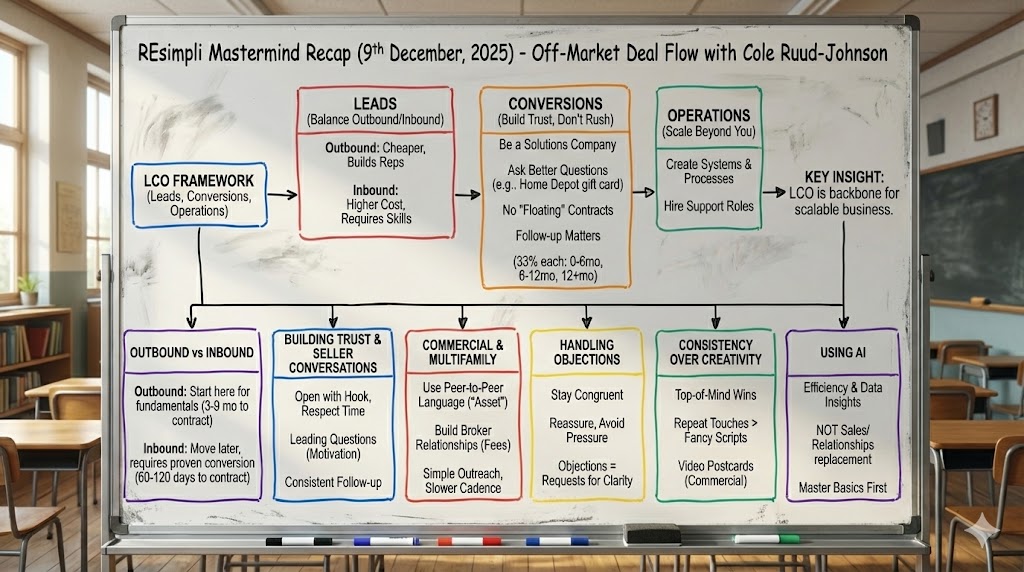How to Get Your Commercial Real Estate License: Comprehensive Guide
In the world of real estate, a sector that intrigues many professionals is commercial real estate—a branch of the industry that deals with properties used for business purposes, such as office spaces, retail centers, and industrial manufacturing properties.
The first vital step to entering this dynamic and potentially lucrative field is obtaining a commercial real estate license.
Throughout this blog, we’ll demystify the process of how to get commercial real estate license certification, outlining what the license is, why it’s so essential, and how to acquire it.
Access a New Dimension of Real Estate
A commercial real estate agent license opens professional doorways to transactions that are typically higher in value, more complex, and, in many ways, often more rewarding than those in residential real estate.
If you’re wondering how to become a commercial real estate agent or a broker, this license is your gateway to succeeding in this unique sector of the real estate industry.
The Process of Acquiring a Real Estate Commercial License
Acquiring a commercial real estate license involves specific steps, education, and examinations, which vary depending on the region or country.
The different parts of the process ensure agents and brokers are fully equipped with all the necessary knowledge, skills, and ethical understanding to handle commercial transactions effectively.
In this comprehensive guide, we will explore the pathways to obtaining a commercial real estate broker license, the differences between a commercial and residential real estate license, and the opportunities the former license unlocks.
Whether you’re looking to make a lateral shift or want to start fresh in the commercial real estate industry, understanding the nuances of the process is a vital first step.
What is a Commercial Real Estate Agent?
A commercial real estate agent is an industry professional who specializes in buying, selling, or leasing properties used for business purposes.
These properties range from modern office buildings and retail spaces to warehouses and industrial sites.
Before becoming a commercial real estate agent, one must fulfill some industry requirements and possess skills distinct from those required in the residential branch of the industry.
Requirements and Qualifications for a Commercial Real Estate License
Education: The first step to becoming a commercial real estate agent typically involves completing some sort of real estate education.
This education usually includes courses in real estate law, property management, finance, and ethics, and it could also be a longer process, such as college.
Licensing Exam: After completing the necessary education, aspiring agents must pass a state or national licensing exam.
In this exam, students are tested on their knowledge of real estate practices, laws, and mathematics.
Experience: Some regions may require some experience in real estate transactions before a professional enters the commercial sector, often under the supervision of a licensed real estate broker.
Continuing Education: Once licensed, commercial real estate agents can often be compelled to complete continuing education or advanced courses to ensure they stay up to date with real estate laws and practices.
Differences Between Residential and Commercial Real Estate Licenses
While residential and commercial real estate are two sides of the same coin, each sector comes with its own pros and cons, along with variations in licensing requirements.
Scope of Work: Residential real estate agents are strictly focused on properties used for living purposes, such as houses, apartments, and multifamily units.
Commercial real estate agents deal solely with properties used for business purposes.
Complex Transactions: Commercial real estate transactions tend to be more complex than most residential dealings, involving significantly larger sums of money and more intricate legal proceedings.
Different Clients: Commercial agents often work with a range of business entities and investors, whereas residential agents typically work with individual clients or families.
Specialized Training: While the initial licensing process may be similar to that of the residential industry, commercial agents often require additional training or certifications to deal with commercial property specifics.
The Importance of Specialized Knowledge and Skills
The commercial sector of the real estate industry demands a high degree of specialized knowledge and skills because of its complexity and the significant financial investments involved.
Market Analysis Skills: Commercial agents must understand market trends beyond the focus of property alone, encompassing economic indicators and their implications on real estate dynamics.
Financial Acumen: Knowledge of basic investment principles, property valuation methods, and the right way to calculate a return on investment is crucial.
Negotiation and Communication Skills: Dealing with business clients differs from individuals, requiring strong negotiation and communication skills that account for multiple stakeholders.
Legal Knowledge: A deep understanding of zoning laws, lease agreements, and property laws is essential for effectively navigating commercial transactions.
Becoming a commercial real estate agent is challenging, but it can also be a rewarding career path.
It requires a blend of education, licensing, and specialized skills distinct from those in the residential sector, meaning agents must be prepared to invest in their learning and development to succeed in the field.
How to Become a Commercial Real Estate Agent
Embarking on a career in this field is an exciting journey that involves several key steps.
From meeting educational requirements to knowing how to get a commercial real estate license, each phase is crucial in shaping a successful career.
Here’s an expanded guide on how to become a commercial real estate agent, complete with detailed tips and actionable insights.
Step 1: Understand the State-Specific Requirements
Initial Research: Start by looking into the specific licensing requirements in your state or country.
Requirements can vary significantly by location, which is why it’s essential to get accurate information from your state’s real estate commission or regulatory board.
Age and Legal Requirements: Check the minimum age and legal eligibility criteria to hold a real estate license in your jurisdiction.
Step 2: Complete Required Education
Accredited Courses: Enroll in and complete courses offered by accredited real estate schools.
These courses cover essential topics like real estate law, ethics, property management, and financing.
Specialization in Commercial Real Estate: Opt for additional modules that specifically focus on the commercial sector.
This can include topics such as commercial property valuation, lease negotiations, and investment strategies.
Online vs. In-Person Learning: Decide whether your learning style aligns more with online courses for their flexibility or in-person classes for a more interactive learning experience.
This will also be influenced by your existing schedule and commitments.
Step 3: Gain Practical Experience
Internships: Apply for internships at established commercial real estate firms in your area.
This real-world experience is invaluable for gleaning a comprehensive understanding of the market and building professional networks.
Mentorship: Seek a mentor you can trust in the commercial real estate field.
A reliable, experienced mentor can provide guidance, insider knowledge, and support as you navigate the next steps of your career path.
Step 4: Prepare for and Pass the Licensing Exam
Study Material: Invest in up-to-date study guides and materials that cover both general real estate principles and commercial-specific content, ideally with state-specific insights.
Practice Exams: Regularly take practice exams to familiarize yourself with the format and time constraints of the actual exam, ensuring confidence when it’s time for the test.
Exam Prep Courses: Consider enrolling in specialized exam preparation courses if you need more structured professional guidance, along with finding certain areas particularly challenging to zone in on.
Step 5: Apply for the License
Application Process: Once you pass the exam, find a licensing firm and complete the application process.
This process typically involves submitting your exam results, sharing any educational records, and a thorough background check.
Application Fees: Be financially prepared to pay any necessary application fees, which can vary from place to place.
Step 6: Continuous Education and Professional Development
Continuing Education: Many states and commercial firms require agents to engage in ongoing education to maintain a real estate license.
These courses are essential for keeping you updated on industry changes and legal requirements.
Specialized Certifications: Consider pursuing additional certifications in areas such as property management or commercial real estate analysis for further specialization, allowing for more unique service offerings.
Join Professional Associations: Associations, such as the National Association of Realtors (NAR), offer countless professional resources, networking opportunities, and further educational courses.
Tips for Success
- Market Research: Regularly research the dynamics of the commercial real estate market to stay informed about the trends and opportunities of the day.
- Soft Skills Development: Enhance your communication, negotiation, and problem-solving skills consistently, as all these aspects are crucial in dealing with clients and closing deals.
- Build an Online Presence: Curate a well-formed professional online presence, including LinkedIn and a personal website, to showcase your offerings and connect with potential clients and mentors.
- Networking Events: Attend industry events, workshops, and seminars to connect with fellow professionals and learn from experts in the field.
Becoming a commercial real estate agent requires a careful blend of education, hands-on experience, and ongoing professional development.
With dedication and strategy, you can navigate the path to becoming a skilled and successful agent in the dynamic world of commercial real estate.
Conclusion
As we wrap up our guide on becoming a commercial real estate agent, it’s important to reflect on the importance of the commercial real estate license itself.
This license is more than a legal requirement; it’s a gateway to a career filled with growth, achievement, and financial success in an ever-evolving industry.
Recap of the Importance of a Commercial Real Estate License
Professional Credibility: Holding a commercial real estate license lends credibility to your practice. It reassures clients and employers of your expertise in the industry.
Access to Resources: A licensed commercial real estate agent gains access to essential resources, including multiple listing services (MLS), professional networks, and up-to-date market data.
Legal Authorization: The license authorizes you to conduct transactions that involve negotiating sales, managing leases, and offering professional advice.
Career Advancement: With a license, you can advance in your career, exploring roles such as brokerage management or even starting your own firm.
Knowledge and Skills: The process of obtaining a license equips you with the ability to navigate the complex world of commercial real estate, from legal aspects to market analysis.
If you’re considering a career in commercial real estate, let this guide serve as a resource and an encouragement to pursue your goals.
The path to becoming a licensed commercial agent is marked with challenges but also opportunities for personal growth.
Remember to:
- Embrace Learning: Embrace both educational aspects and real-world experiences with an open mind.
- Stay Determined: The path to obtaining your license requires determination and hard work. Focus on your goals, and don’t be deterred by challenges.
- Seek Mentorship: Connect with experienced professionals who offer guidance as you navigate the early stages of your career.
- Network Actively: Build a professional network, as relationships are key in this industry. Attend events, join groups, and engage with peers.
- Keep Adapting: Stay adaptable and continue to educate yourself on market trends and new industry practices.
With the right approach, dedication, and commitment to education, you can achieve a fulfilling career in this exciting field.
Remember, your journey starts with pursuing your commercial real estate license.
For more insightful pieces on the real estate industry, check out our blog today.



